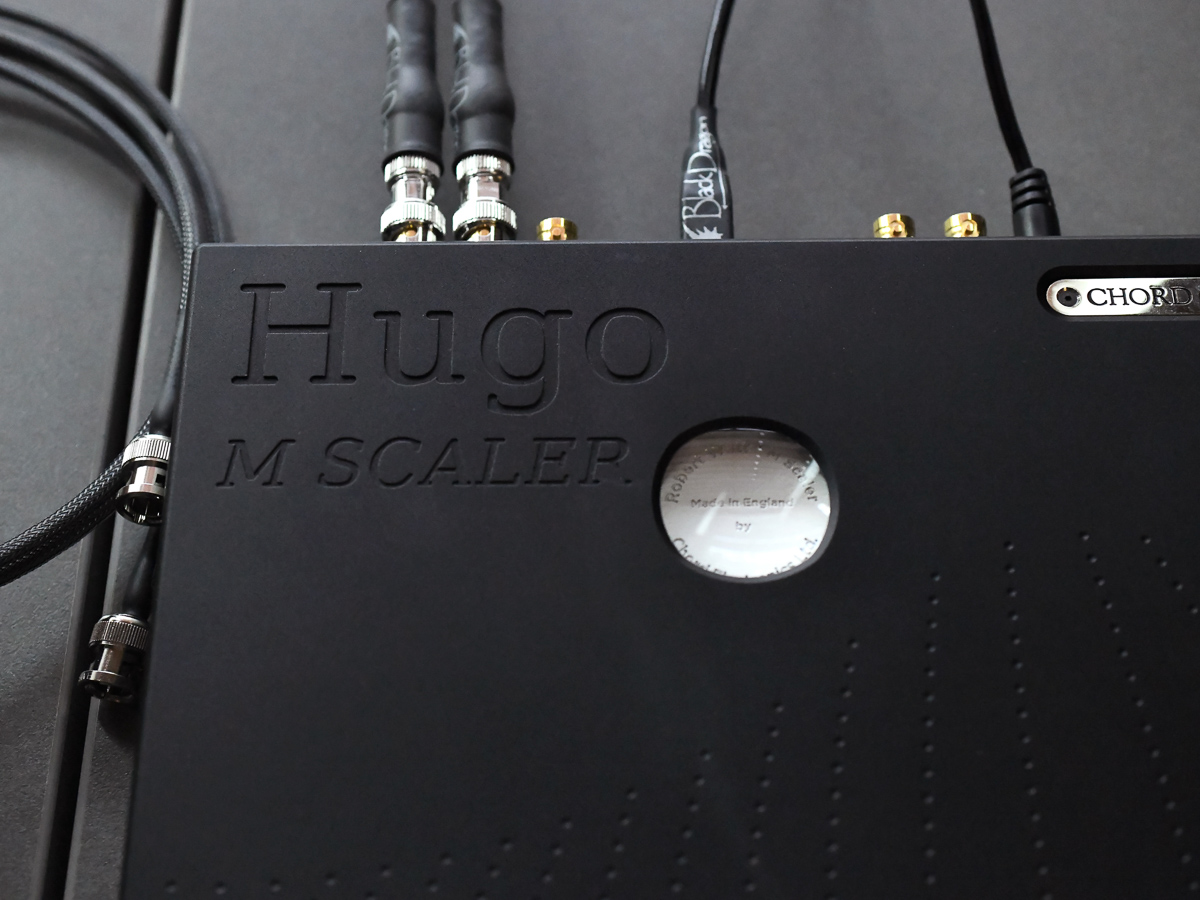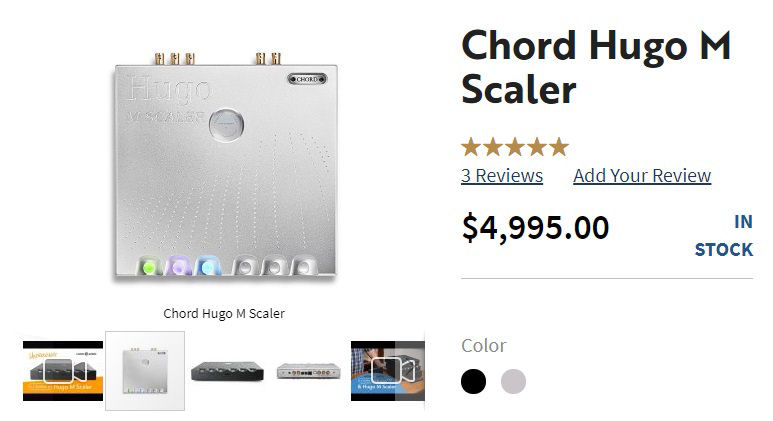Chord Hugo M-Scaler Review
Eureka, I Can Hear!
By Drew Baird


Chord Hugo M Scaler Initial Review.
Soon I'll hit the big 50. I don't feel like a "fifty-year-old," but there are signs. A year ago my vision dived over a cliff. An optician confirmed the dive. She prescribed progressive bifocals for farsightedness. Working on cable designs and circuit modifications requires sharp vision.
Why tell you about aging eyes? Looking down through new glasses to see the razor-sharp focus needed to work with small components creates a "Eureka I can see" moment. The Hugo M Scaler creates a "Eureka I can hear" moment.
Beautiful Music with Long Filters
Chord engineer Rob Watts wears glasses also. He develops new digital audio gear using eyes, ears, and a big brain. Conventional industry practice uses short digital filters in DACs (digital to analog converters). Watts' filters are becoming longer and longer.
M Scaler is a digital in, digital out upsampler featuring more than one million filter taps. This means the linear-phase finite impulse response (FIR) interpolation has more than a million coefficients (1,015,808). Other DACs use filters with a few hundred taps (coefficients) at most.
Keith Howard Tapping Into Digital Audio
Watts believes long filters produce better sound. Long filters are anathema to some audio engineers. Chord's better sound seems confirmed by audiophiles' love for the Mojo, Qutest, Hugo 2, and the new Hugo TT 2 DAC (shipping soon). Here's Keth Howard on Watts' design criteria.
Better results are obtained if the excerpted sinc function is shaped or 'windowed' to avoid sudden truncation at either end. The Watts Time Alignment (WTA) windowing algorithm is a proprietary and highly guarded secret. Its name indicates Watts’ principal design criterion - accurate transient timing.
Keith Howard (emphasis mine)


Hugo M Scaler + Chord DAC = Awesome
I've listened non-stop to the Hugo M Scaler connected to a new Hugo TT 2 DAC (new and shipping soon) for days. As John Darko's RMAF post notes, the M Scaler has a magic knob - the Output Sample Rate button. Switching the scaler in and out of the signal path is like visiting the optician.
"Better or worse," my optician asked as a lens slid in that weird robot face tool they use. A glass would drop, and clear vision returned. I'd click the M Scaler's Output Sample Rate button, and music detail, beauty, and full sound returned. Hearing more musical detail, clarity and a bigger soundstage and make going backward impossible.
The improved transient accuracy of the longer filter makes instrumental timbre clearer, tightens bass and dramatically opens up the soundstage.
Keith Howard quoting Rob Watts on M Scaler sound benefits
Yep, I'd click the M Scaler in and better dimensionality, resolution and razor-like focus returned. Playing with "sharp" and "smooth" digital filters on the TT2 was fun too. The "Sharp" and "Smooth" filters require more explanation than I have time for today so I'll add to these initial Hugo TT 2 impressions soon.


Resources on the Moon
Chord M Scaler product page
DACs - Chord Hugo 2 & Qutest


